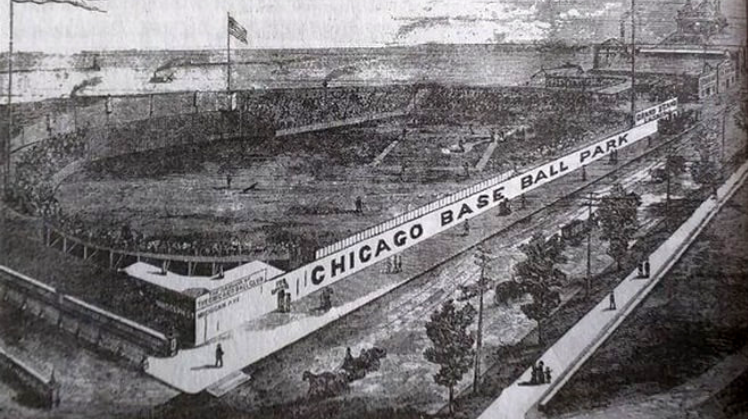
The 1881 baseball season continued the trajectory of growth and change in the sport, with several notable events and developments that helped shape the game.
On the field, the Chicago White Stockings, led by manager Cap Anson, defended their National League pennant, finishing the season with an impressive 56-28 record. This marked the second consecutive championship for the White Stockings, a testament to Anson’s leadership and the talent of key players like pitcher Larry Corcoran.
Off the field, labor issues were increasingly coming to the fore. Discontent among players over the reserve clause, which essentially tied players to their teams and limited their bargaining power, was growing. This discontentment led to the formation of the Players’ League in 1881, an early attempt by players to organize and assert their rights. While the Players’ League would not play its first game until 1890, the decision to form the league marked an important moment in the early labor movement within baseball.
Another critical development in 1881 was the creation of the American Association, a rival major league to the National League. Established as a response to the National League’s perceived monopoly and strict regulations, the American Association sought to attract fans with lower ticket prices, more liberal rules regarding alcohol sales, and Sunday games. The competition between the two leagues would influence the business and culture of baseball for the next decade.
The 1881 season also saw significant achievements on the individual level. Pitcher Jim Whitney of the Boston Red Caps completed one of the most impressive all-around seasons in baseball history, not only winning 31 games but also hitting .323 with 5 home runs. His dual-threat performance showcased the versatility that some players possessed in baseball’s early years.
Furthermore, the rules continued to evolve, reflecting the ongoing effort to standardize the game and strike a balance between offense and defense. The distance between the pitcher’s mound and home plate was altered, and the pitching box’s size was adjusted, all in a bid to find the right equilibrium between pitchers and hitters.
In summary, the 1881 baseball season was marked by both continuity, as seen in the Chicago White Stockings’ repeat championship, and significant change, as evidenced by the formation of the Players’ League and the American Association. The evolution of rules, outstanding individual performances, and the deepening complexity of the business side of the sport all contributed to an exciting and transformative period in baseball’s history. The year set the stage for the growing popularity and competition that would characterize the game in the late 19th century.
Pitchers
George Derby
Pud Galvin
Jim Whitney
Starting lineup
Cap Anson
Charlie Bennett
Fred Dunlap
Ed Williamson
King Kelly
Jack Glasscock
George Gore
Dan Brouthers
Bench
Joe Start
Silver Flint
Jack Rowe
John Morrill
Ezra Sutton